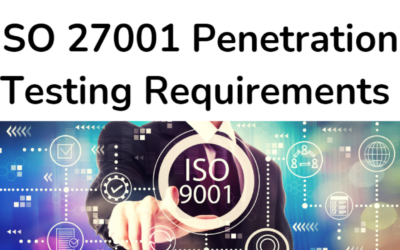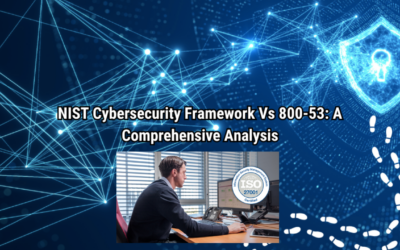BSI ISO 27001 is an internationally recognized standard for Information Security Management Systems (ISMS), plays a pivotal role in safeguarding sensitive data and ensuring organizational resilience against cyber threats. This article explores the essence of BSI ISO 27001, its significance, benefits, and how organizations can successfully implement it to achieve comprehensive information security.
Understanding BSI ISO 27001
BSI ISO 27001 is a globally acknowledged standard published by the International Organization for Standardization (ISO) and the International Electrotechnical Commission (IEC). It specifies the requirements for establishing, implementing, maintaining, and continually improving an ISMS. By adopting ISO 27001, organizations can systematically identify, assess, and mitigate information security risks.
The core principles of ISO 27001 include:
- Confidentiality: Ensuring that information is accessible only to authorized individuals.
- Integrity: Maintaining the accuracy and completeness of information and its processing methods.
- Availability: Ensuring that authorized users have access to information and associated assets when required.
The Role of BSI in ISO 27001
The British Standards Institution (BSI) is one of the leading certification bodies that provides accreditation for ISO 27001. As a trusted authority, BSI offers a wide range of services, including training, certification, and auditing, to help organizations comply with the ISO 27001 standard. Their expertise ensures that businesses can achieve certification efficiently while maintaining the highest levels of information security.
Why is BSI ISO 27001 Important?
Implementing BSI ISO 27001 is not merely about compliance; it is about embedding a culture of security within an organization. Here’s why it matters:
- Global Recognition: ISO 27001 certification is a globally recognized benchmark for information security, enhancing an organization’s reputation.
- Risk Mitigation: The standard provides a structured framework to identify and address potential security risks proactively.

- Regulatory Compliance: Many regulations and industry standards require adherence to information security principles outlined in ISO 27001.
- Customer Confidence: Certification demonstrates a commitment to data protection, building trust with customers and stakeholders.
- Operational Resilience: By addressing vulnerabilities and establishing robust security protocols, organizations can minimize downtime and disruptions caused by security incidents.
Benefits of Implementing BSI ISO 27001
Adopting ISO 27001 through BSI certification offers numerous advantages:
- Enhanced Security: A comprehensive ISMS ensures that sensitive data is protected against unauthorized access, breaches, and cyberattacks.
- Competitive Edge: ISO 27001 certification differentiates organizations in the marketplace, attracting clients who value information security.
- Cost Efficiency: Proactive risk management reduces the financial impact of potential security incidents.
- Improved Processes: The standard encourages a culture of continuous improvement, streamlining business processes and enhancing efficiency.
- Employee Awareness: Training and awareness programs associated with ISO 27001 foster a security-conscious workforce.
Key Components of BSI ISO 27001
The implementation of ISO 27001 involves several critical components:
- Leadership Commitment: Top management must demonstrate a commitment to establishing and supporting the ISMS.
- Risk Assessment: Organizations need to identify information security risks and implement controls to mitigate them.
- Policy Framework: Clear policies and procedures should be established to guide employees in maintaining information security.
- Monitoring and Auditing: Regular monitoring and internal audits ensure the effectiveness of the ISMS and identify areas for improvement.
- Continuous Improvement: ISO 27001 emphasizes the importance of reviewing and enhancing the ISMS to address evolving security threats.
The Process of BSI ISO 27001 Certification
Achieving ISO 27001 certification through BSI typically involves the following steps:
- Gap Analysis:
- Assessing the organization’s current information security practices against ISO 27001 requirements.
- Identifying gaps and areas requiring improvement.
- ISMS Development:
- Establishing an ISMS tailored to the organization’s specific needs and objectives.
- Defining the scope, policies, and controls necessary for compliance.
- Implementation:
- Implementing the defined security controls and measures.
- Training employees to ensure adherence to information security policies.
- Internal Audits:
- Conducting internal audits to verify compliance and readiness for external certification.
- Addressing any non-conformities identified during the audit.
- Certification Audit:
- Engaging BSI or another accredited certification body to conduct an external audit.
- Successfully passing the audit to achieve ISO 27001 certification.
- Surveillance Audits:
- Regular follow-up audits ensure ongoing compliance and the effectiveness of the ISMS.
Challenges in ISO 27001 Implementation

Implementing ISO 27001 can be challenging, particularly for organizations new to information security standards. Common obstacles include:
- Resource Constraints: Establishing an ISMS requires time, effort, and financial investment.
- Complexity: Smaller organizations may find the standard’s requirements overwhelming.
- Resistance to Change: Employees may be reluctant to adopt new security protocols.
- Technical Challenges: Integrating advanced security technologies can pose difficulties.
- Maintaining Compliance: Ensuring continuous adherence to the standard’s requirements demands ongoing effort.
Tips for Successful ISO 27001 Implementation
To overcome these challenges and ensure successful ISO 27001 implementation, consider the following tips:
- Engage Leadership: Secure active support from top management to allocate resources and promote a culture of security.
- Conduct Training: Educate employees on the importance of information security and their role in maintaining it.
- Use Expertise: Engage BSI or professional consultants for guidance and expertise in navigating the certification process.
- Adopt a Phased Approach: Focus on high-priority areas first, gradually expanding the ISMS scope.
- Leverage Technology: Invest in reliable security tools and technologies to support ISMS implementation.
Conclusion
BSI ISO 27001 is more than just a certification; it is a strategic tool for enhancing information security, building trust, and achieving operational excellence. By partnering with BSI or a trusted consulting firm, organizations can navigate the complexities of ISO 27001 implementation and reap the long-term benefits of a robust ISMS.



0 Comments